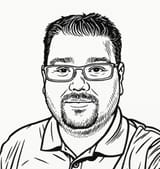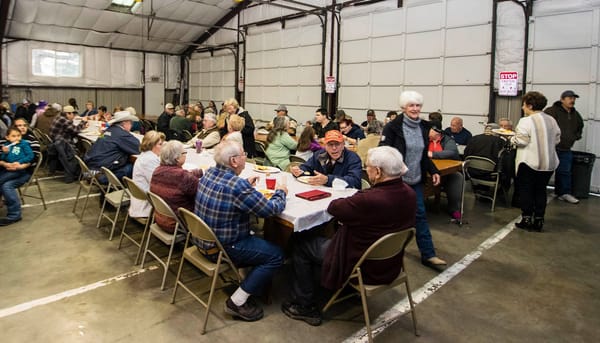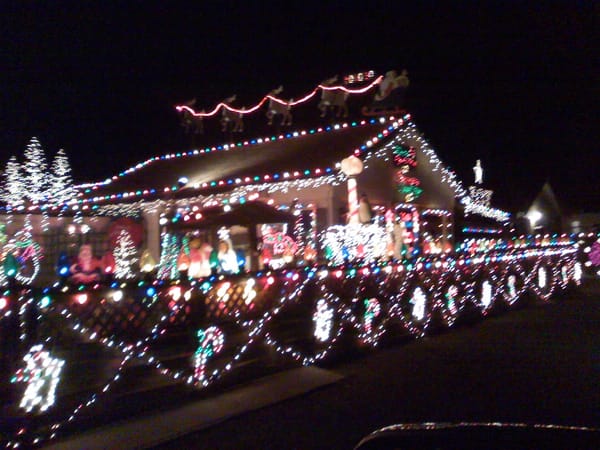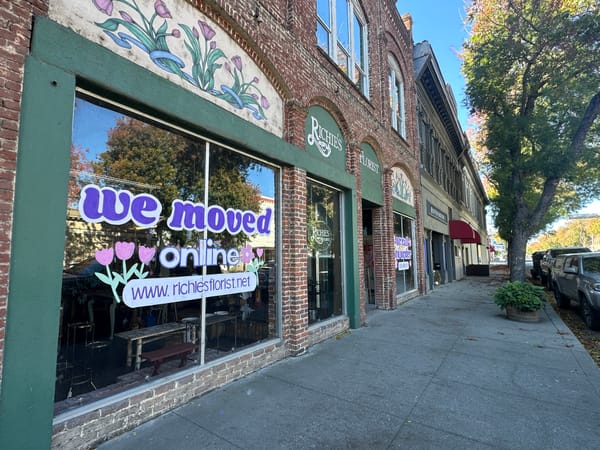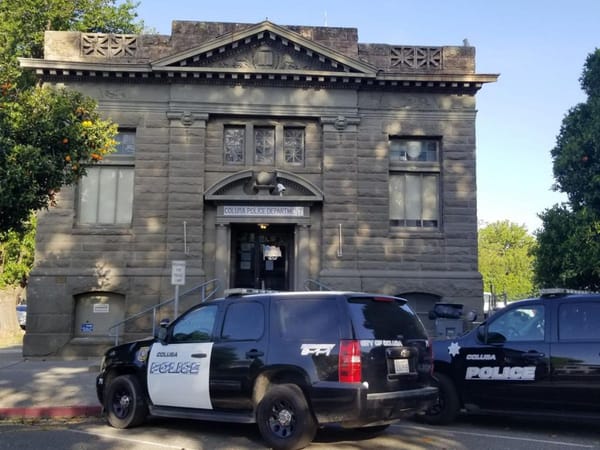Writers gather for LiveLit at Salmon Bend Art Studio
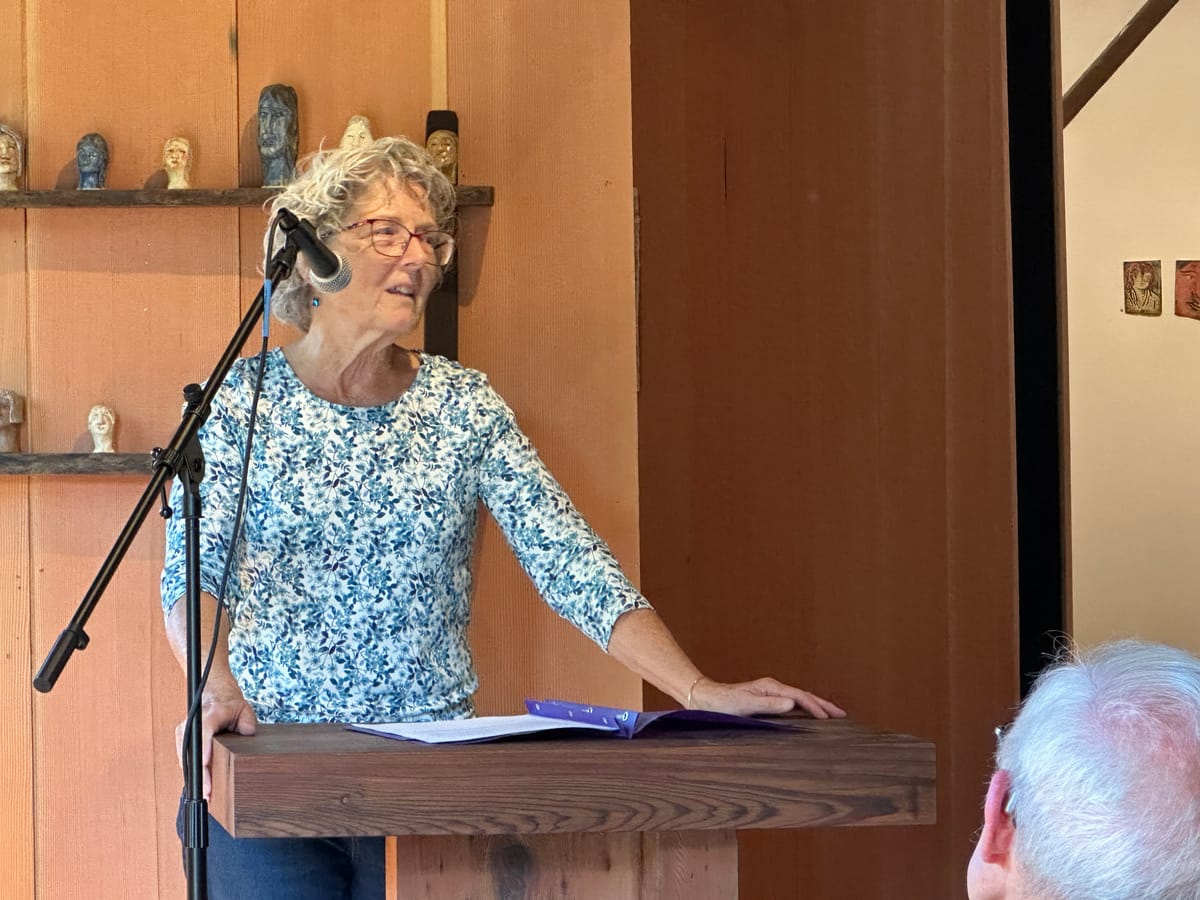
COLUSA, Calif. — What began as a casual LiveLit gathering at Salmon Bend Art Studio on Saturday evening turned into a thoughtful exploration of memory, family, and how the places we call home shape who we become.
Hosted by the Colusa County Arts Council, the event was part of the ongoing LiveLit series, which brings local writers together to share original work in an open, welcoming setting.
Host and organizer Mark Leidner opened the night with gratitude for the Arts Council’s support and his only instruction for the night was simple: no theme.
“Literature is a place for talking about things that aren’t contingent on the current moment,” Leidner said. “So much of our childhoods are locked away in a safe we only open in snippets. LiveLit is a place to share what’s in there.”
The first reader, Thomas Roach, offered a piece that celebrated the quiet persistence of artists and makers. He described creativity as living in small, exact gestures such as the tip of a brush, a needle pulling thread, or a perfect piece of clay placed by hand.
“They push, and they prod. They squeeze,” Roach said. “And that squeeze, that juicy pulp, that meaty, dripping expression. Grab your cup. Catch some of it. Take a sip. Oh, it is good.”
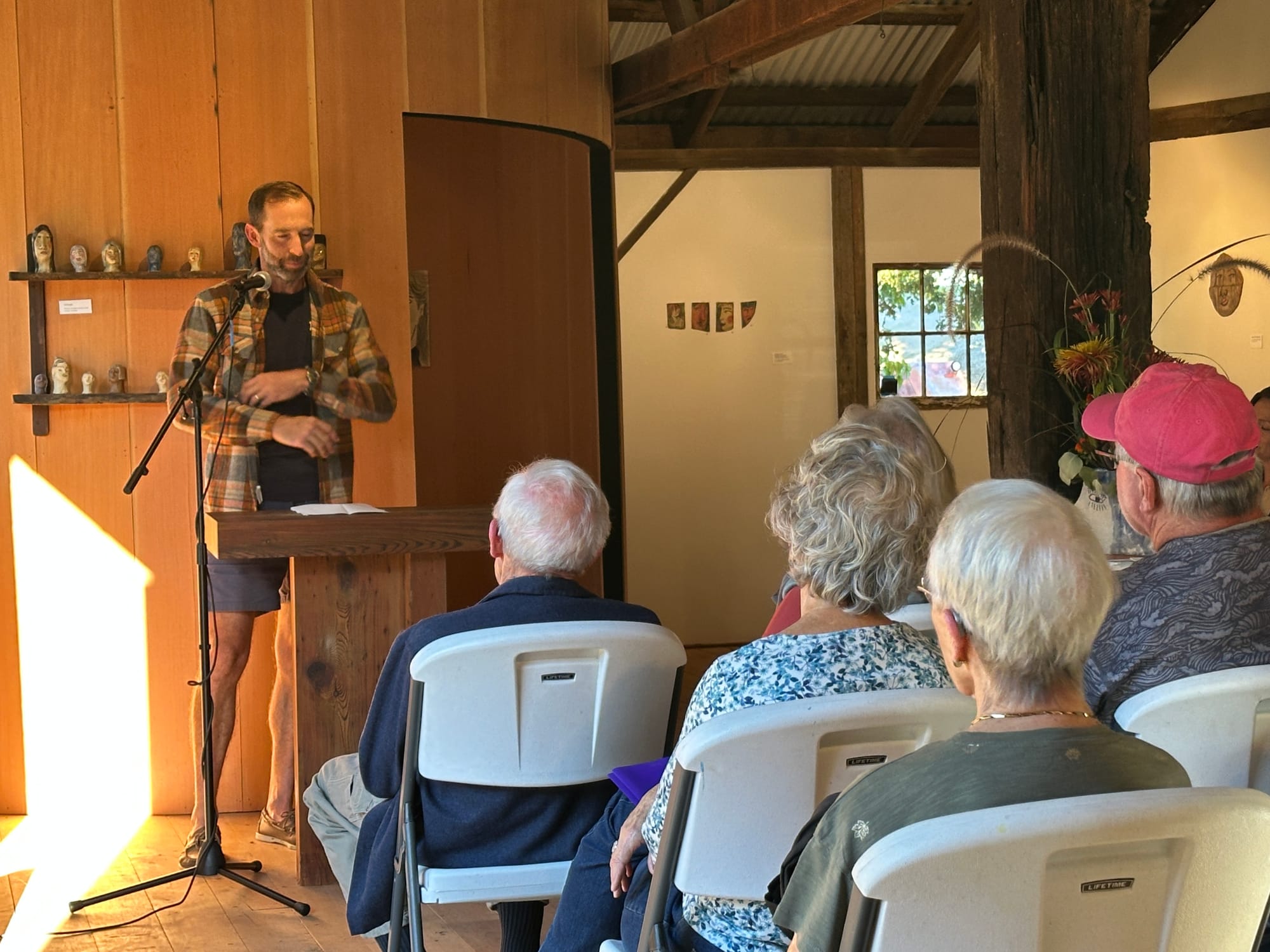
Leidner reflected afterward that he had known Roach’s late mother when she was a young teacher and that often the most powerful art comes from neighbors we think we already know.
Kerri Bartlett followed with one of the evening’s most intimate readings, a poem written decades ago after finishing Kathleen Norris’s The Cloister Walk. Bartlett said she grew up without memories or photographs of her father, who died before she turned two.
“I armored myself against this rejection by in turn rejecting him,” she said. Years later, during prayer, a single sentence came to her: “Your father loved you.” Then came vivid memories she had never consciously held, like being burped on his shoulder and cradled in his arms.
“There was no doubt these were real events,” Bartlett said. “My reality has been altered.”
Leslie Poland shared a story about his own father, who he described with affection as “a bit of a thug.”
As a boy, Poland found a book of poems at home and assumed it belonged to his mother. It was his father’s. Together they read from it, including Edmund Vance Cooke’s “How Did You Die?”
“It isn’t the fact that you’re licked that counts,” Poland said. “It’s how did you fight, and why?”
Laura Keller’s essay, “Wild Geese and Oranges,” brought listeners to her childhood in Colusa, where her family restored a century-old home and discovered abundance in unexpected places.
“I can pick as many as I want,” she said, describing the family’s orange tree. “Each one has a different geography inside.”
Molly Knappen transported the room to a Michigan sledding hill from her childhood and closed with an image of hope, a single dandelion forcing its way through snow.
“I don’t think kids will ever tire of flinging themselves into the world,” she said. “And I don’t think weeds will ever stop growing.”
Brendan Farrell shared a poem titled “The Shade,” exploring darkness, light, and the human space between them.
“We are not all or nothing,” he said. “We are everything in between.”
Leidner ended the evening with several short works from his phone notes, including “The Belt Not Taken” and “The Problem with Beauty.”
As guests lingered to visit, and browse the artwork, the event closed much as it began, without a theme but with one that quietly emerged. Between grief and gratitude, the writers found what Leidner had promised: a place to open the safe.
